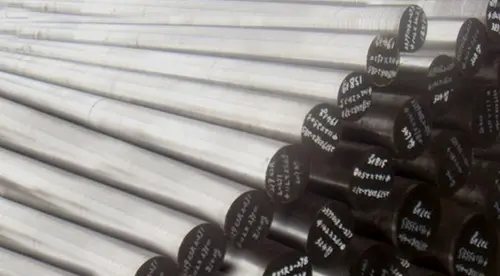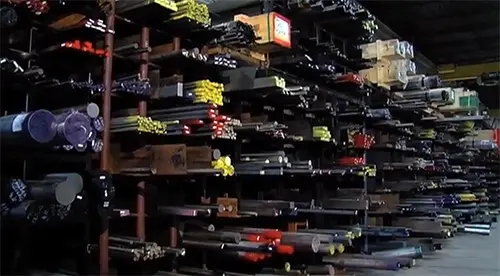What is CPM Steel?
What is CPM Steel? CPM stands for Crucible Particle Metallurgy and is a method of producing higher alloyed grades of superior quality than could be accomplished through conventional steelmaking. CPM steel is useful for high-alloy tool steel and high speed steel.
What Are the Advantages of CPM Steel?

Steel produced with particle metallurgy offers advantages over ingot-cast tool steels for both the tool manufacturer and the end user. With sulfur enhancement, it offers improved machinability to the tool manufacturer. The grindability is excellent, and it provides a stable substrate for coatings.
Upon heat treatment, the size change is predictable and its response is consistent. Wire EDM cutting is efficient with CPM steel. Particle metallurgy steel products also offer benefits to the end user. Upon resharpening, it has good grindability. The performance of the tools is consistent.
The wear resistance and the toughness are both improved, with less chipping. Products made with particle metallurgy steel offer the end user with higher grades of alloys than they would be able to obtain otherwise.
Common Types of CPM Steel
Some common types of this steel include cpm m4, cpm t15 tool steel, cpm 10v (also known as a11 steel or aisi a11), cpm rex 45, and more.
How Is CPM Steel Made?
Steel is an alloy made from two or more different metals. These are melted together so that they form a homogenous molten bath. During a manufacturing process that involves particle metallurgy, we then pour the molten metal through a small nozzle. The liquid then streams into a spray of tiny droplets due to a burst of a high-pressure gas through the nozzle.
The droplets are roughly spherical in shape and collect as powder particles in the bottom of the atomization tower as they cool and solidify quickly. In a sense, each of the powder particles is its own micro-ingot with fine carbide size and uniform composition.
The powder that results from this process is then loaded into sealed and evacuated steel containers after screening. The containers holding the particles are then subjected to temperatures similar to those used for forging and extremely high pressure. The process is referred to as hot isostatic pressing, and it produces a microstructure that is fine grained and homogenous.
There is a uniform distribution of carbides in high-carbon grades. If improved toughness is desired, this type of steel can then undergo standard mill processing. It can also be used in the as-HIP condition.
How Is This Different From Conventional Steelmaking?

The first few steps in conventional steelmaking are similar to those in the particle metallurgy process. The former process, however, involves pouring the homogenous molten metal bath made of alloying elements into individual ingot molds after transferring from the furnace into a ladle. Once poured into the ingot molds, the metal is allowed to cool down slowly.
The individual ingredients segregate during the process of solidifying in the ingot molds. Due to the segregation, the as-cast microstructure is no longer uniform. Carbides can form a coarse intergranular network as they precipitate from the melt in high-carbon tool steels and high-speed steels.
Refining the microstructure by breaking up the carbide network requires subsequent mill processing. However, not even this is sufficient to fully eliminate the effects of segregation on the metal. When it comes to tool fabrication and performance, alloy segregation can have a detrimental effect.
How Does CPM Steel Eliminate Segregation?
Because the powder particles cool and solidify so quickly, there is no segregation. Grain growth is prevented due to the uniform distribution of fine carbides. Therefore, the compact that results from the process of particle metallurgy is also free from alloy segregation.
Find Out More About the Process
First developed in 1970, the process of particle metallurgy used to make this type of steel has been in use for nearly 50 years. Learn more about the particle metallurgy processing used at Griggs Steel by contacting us today.
